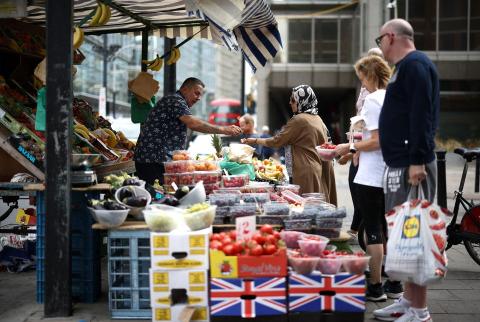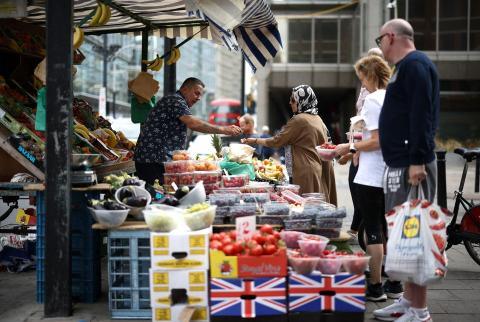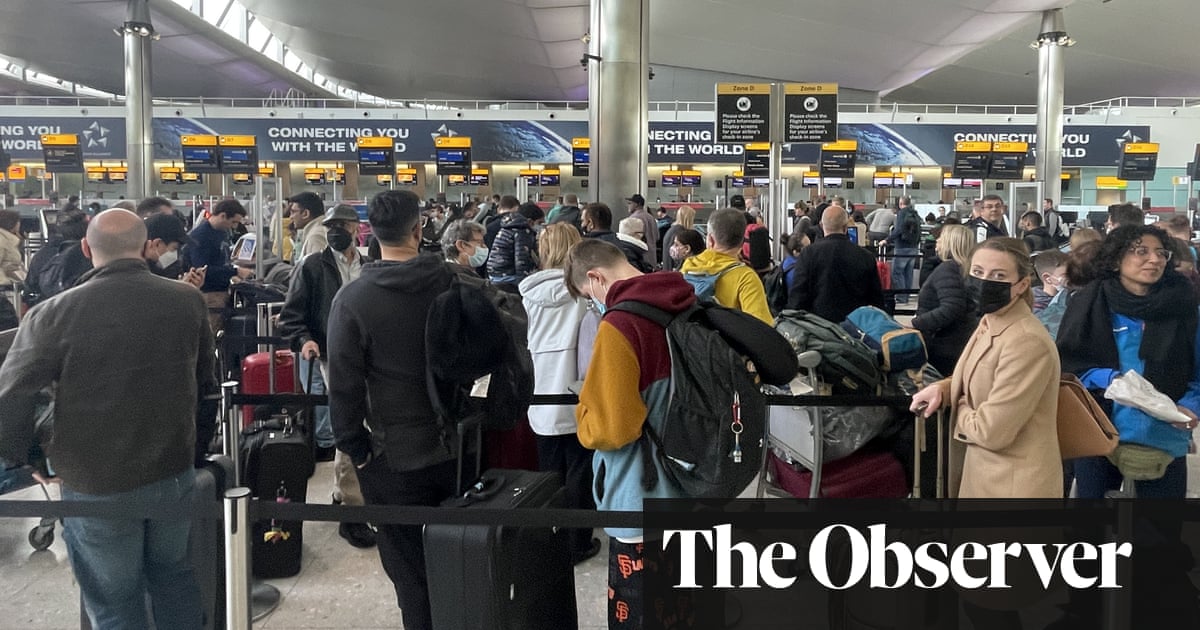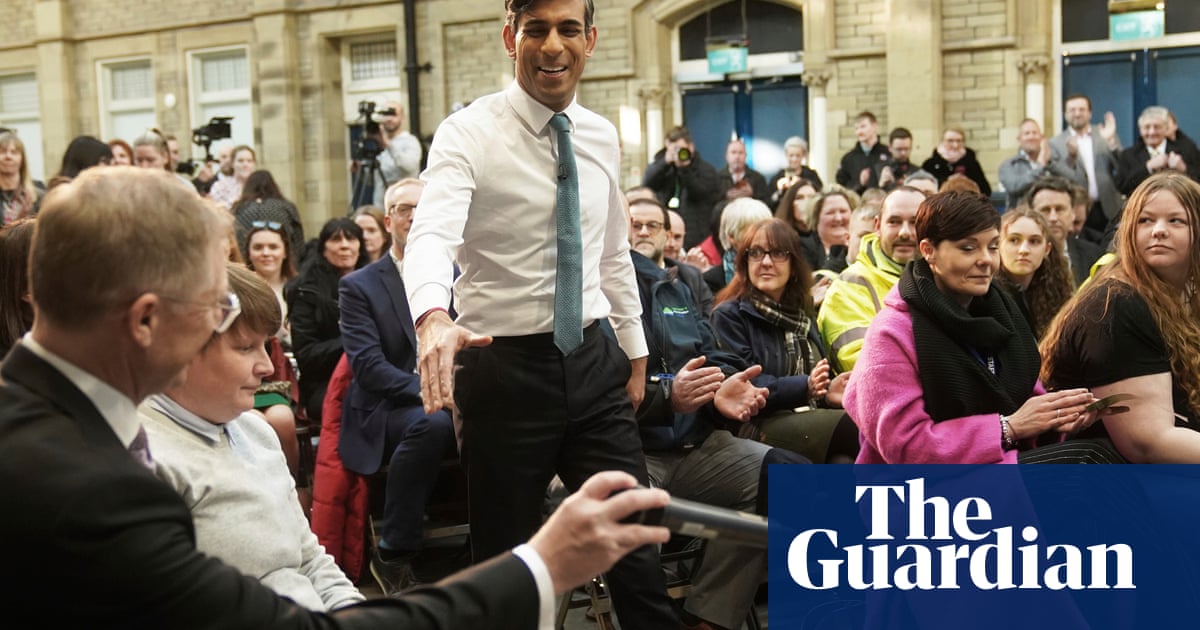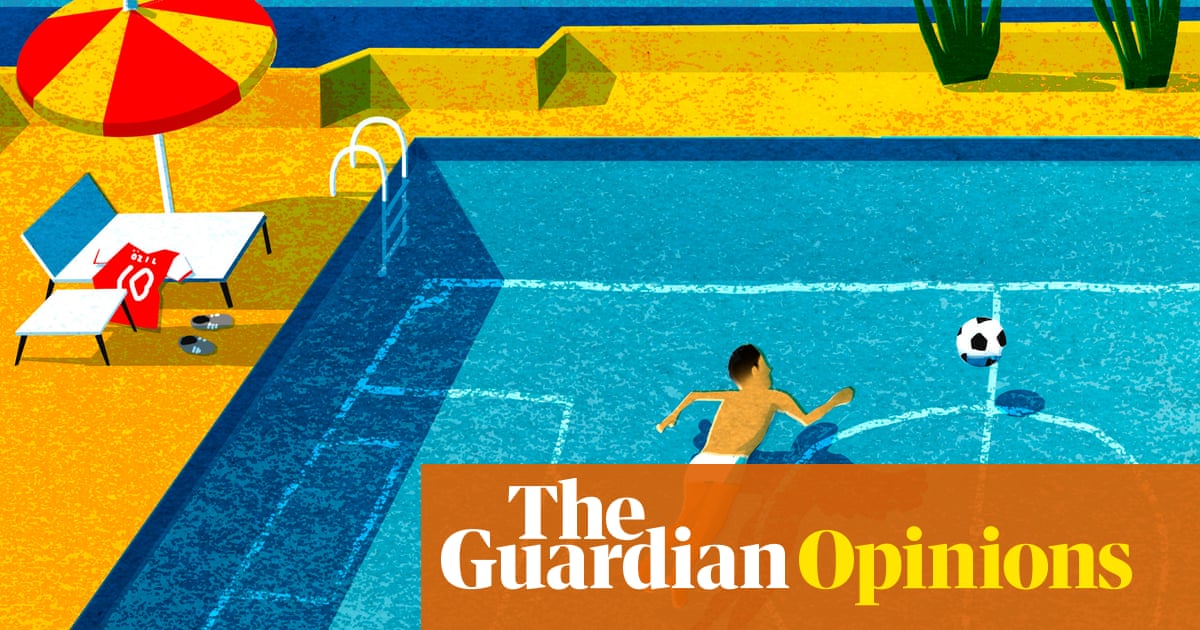
Cannon to the right of him, cannon to the left. Since delivering his budget, Rishi Sunak has been bombarded by two batteries of opinion. From the right, there are yelps of incredulous horror that he and Boris Johnson have turned the Conservatives into a high-tax, high-spending party. Many of the Tory party’s traditional supporters in the media are aghast, while MPs rumble with discontent. “It is back to the 70s,” groans one senior Conservative who is old enough to remember the decade that ended with Margaret Thatcher turning up to roll back the state.
From the left, there are cries that this budget was essentially a con trick because the chancellor’s spending is nothing like as munificent as he sought to make it seem, as he rattled off extra billions here, there and everywhere that the next-door neighbour demanded splashes of cash. Mr Sunak made the audacious claim that the Conservatives are “the real party of public services”, but critics retort that large swaths of the public realm will remain in worse shape than when the Tories arrived in office more than a decade ago.
The prime minister and chancellor may be telling themselves that being attacked from both right and left demonstrates what a politically cunning budget this was. If they have angered Guardianistas while also provoking the wrath of Telegraphers, they must be positioned in the centre ground, which is where most voters tend to congregate. And anyway, the right and the left can’t both be correct, can they? Actually, they can.
The right is right about tax. A Conservative party that has always retailed itself to voters as the party of low taxes will now preside over increases unprecedented in both rapidity and scale. Some of the raids are going to be extremely obvious to the public, notably the hike in national insurance that will bite next year. Others are more stealthy, but add up to a lot over time, such as steadily dragging more and more people into higher brackets of income tax by freezing thresholds. The Resolution Foundation calculates – and the Treasury hasn’t disputed the figure – that the average household will be £3,000 a year worse off. Tax relative to the size of the economy will surge to the highest level since the early 1950s when the Attlee government had been rebuilding Britain after six years of a world war.
Mr Sunak knows how unpopular this is with the Tory MPs whose support he wants when they next elect a leader. So he tells them that this distresses him as much as it does them. There was an odd passage in his budget speech when he abruptly launched into a homily about the virtues of the limited state, as if some other guy had been jacking up all these taxes while he wasn’t looking. On the evening of the budget, he sought to appease restive Tory backbenchers by promising in a meeting with them that he wants to cut taxes before the next election. The noisy approval he received from his audience suggests that we are not seeing a genuine ideological conversion of the Conservative party to a big, interventionist state. They landed here without intending to as a result of circumstances and past mistakes, while being led by a cakeist spender who is especially anxious to please red wall voters.
Despite the vast amounts of tax being sought, the left’s critique of spending is also correct. Judged by the standards of the recent past, the increased money for public services looks quite good. But the recent past is not the way to benchmark this budget. The better yardstick is to compare what provision for public services is expected to look like in 2024 with how well they were funded when the Conservatives took power in 2010. This is not a comparison that Mr Johnson is keen on. He would rather a great wave of amnesia washed over the country’s collective consciousness and everyone entirely forgot about David Thingy, George Whatwashisname and that unfortunate woman who briefly lived at Number 10 before he moved in. The prime minister wants the public to think of him as heading an entirely different and relatively young kind of government, one that never had anything to do with all that dreadful austerity. Because if people assess the overall record since 2010, the Tories do not at all look like good friends to public services.
The NHS will have enjoyed a substantial real-term increase in funding, in part as an inexorable consequence of ours being an ageing society. Education got a bit more cash to address lost learning as a result of the pandemic, but nothing like the sum recommended by the prime minister’s catch-up tsar, Kevan Collins, before he resigned over the government’s refusal to heed his advice. The best-case analysis sees spending per pupil just about getting back to where it was in 2010. In virtually all other areas of activity, Mr Sunak might be drawing a line under austerity, but he is not undoing it. There was an example of this when he boasted about releasing a small sum for “family hubs” offering early years support while neglecting to mention years of swingeing cuts to Sure Start centres, many of which have been closed because of chronic underfunding of local government. Councils, custodians of many critical public services, have taken an especially savage hammering during the Tory years. The real-term funding of local government will still be far less than what it was before they arrived in office.
There’s a reason why many public services will remain mediocre or worse even as taxes rise to their highest level in 70 years. The fundamental explanation is the sluggardly pace of economic growth. When the economy expands at 2.5% a year, the country can afford to buy itself decent public services with relatively modest levels of taxation. At growth of 1.5%, you end up with inferior public services for higher levels of taxation. For the past decade, growth has been much closer to 1.5% than it has been to 2.5%. “Rishi is crossing his fingers and saying we can have this extra spending and then some tax cuts before the election,” says one former cabinet minister on the One Nation wing of the Conservative party. “The gamble is on growth.”
Another former cabinet minister of a much more Thatcherite persuasion agrees: “If this were American football, it would be called a Hail Mary. He’s tossed the ball up hoping that it lands in the right place. It’s full of risks. His plan is to create tax cuts before the next election, but he may not have the growth to be able to afford them.”
The gamble on growth is one the chancellor will lose if the official forecasters have got it right about the economy. The Office for Budget Responsibility reckons the rebound from the pandemic will fizzle out and growth will become highly disappointing towards the end of this parliament. It has also confirmed that the government handicapped itself with a very hard version of Brexit. Mr Sunak might brag that departure from the EU has liberated him to reform taxes on booze, but he can’t claim any Brexit bonus for the economy. The reverse is the case. Brexit will permanently erase 4% from GDP, reckons the OBR, twice the damage inflicted by Covid. That squandered growth which could have paid for a lot of teachers, police officers and care workers.
The chancellor, who exhibits signs of inhaling his next-door neighbour’s boosterish rhetoric, promises us “an economy fit for a new age of optimism”. It won’t seem like that if growth is so anaemic that it will feel non-existent to a lot of the country. Rising costs are already making many households feel pessimistic about their future living standards, an issue that affects nearly everyone, but one about which the chancellor said little and did less. Britons face soaring energy bills, higher prices in the shops and inflation threatening to rise to its worst level in three decades. Financial institutions are putting up how much they charge for a mortgage in expectation that the Bank of England will soon start hoisting interest rates. Rising inflation and borrowing costs combined with poor growth and heavier taxes is a recipe for near-frozen disposable incomes. Independent forecasters expect most people to experience little improvement to their living standards and some a squeeze over the next five years.
The chancellor is desperately hoping that these forecasts will turn out to be wrong. Because, if they are right, the public will not be experiencing a vibrant Age of Optimism when they next elect a government. It will feel a lot more like a grinding Age of Stagnation.
Andrew Rawnsley is Chief Political Commentator of the Observer





